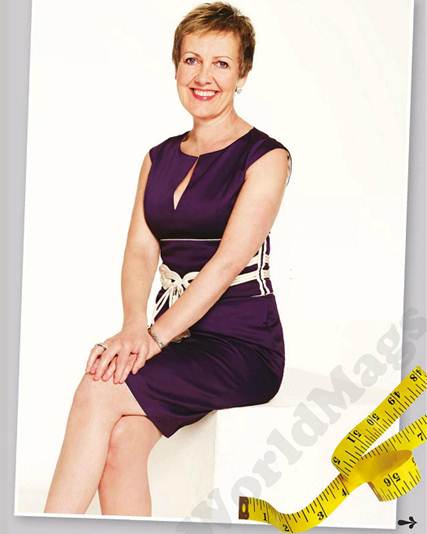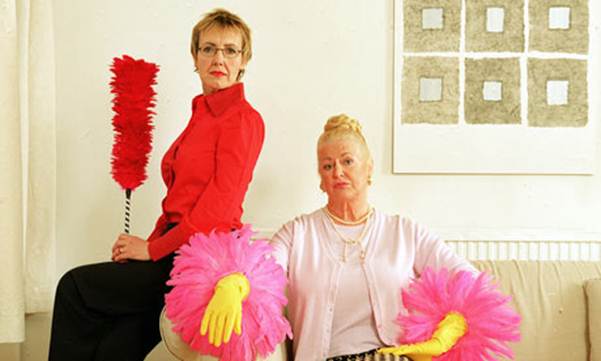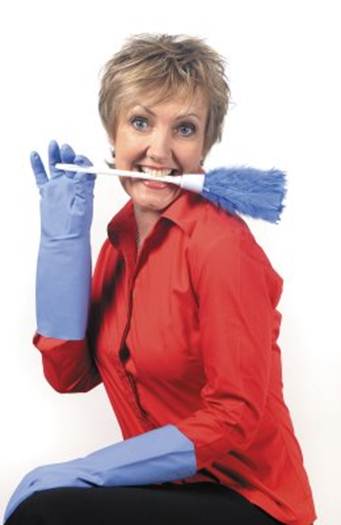It’s the Holy Grail of dieters – not just
losing weight, but staying slim. Our columnist Aggie MacKenzie has kept to her
goal weight for years, so we asked her and three other successful dieters for
their secrets…
“Even now, I’m astounded by my own reflection”
It’s hard to imagine TV’s Aggie MacKenzie,
56, of How Clean Is Your House fame, as anything but the energetic, slim woman
we see today. But for years she struggled with her weight. Then she read a book
that changed everything…

‘I
was in a panic: where was it all going to end?’
From about the age of 13, probably
coinciding with the onset of puberty, I began to eat compulsively (anorexia was
never going to be an issue for me). I remember the sensation of never feeling
sated. I used to eat, secretly – usually cakes, biscuits and sweets – unit I
felt overfull and almost sick. Soon the overeating became evident through
weight gain, and my teenage years were dominated by an awkward relationship
with my body. My sister, two years older than me was supper-skinny, and instead
of her weekend wages being blown on sweets and chocolate, she would save up and
buy the latest skimpy fashions by mail order – something that was well out of
my reach. I (reluctantly) shopped for clothes on the basis of, “Is there
anything here that I’ll be able to get into?”, usually choosing something a
size smaller that I hoped to squeeze into if I stuck to The Diet.

.
I used to eat, secretly – usually cakes, biscuits and sweets – unit I felt
overfull and almost sick
Ah, The Diet. My mother tried to help – we
did the grapefruit and egg; ate Ayds (weird, expensive 1960s toffees that were
supposed to help you lose weight) by the box; bought Energen rolls
(polystyrene-like texture, full of air); snacked on Ryvita, especially spread
thickly with butter; and finally joined a slimming club. My start weight was
11st 5lb and my target weight 9st 2lb. That was a rocky road: up, down, up,
down and up again, seldom managing to eat sensibly. I was often overcome with feelings
of self-disgust, failure, frustration and hopelessness.
As I left home to work in London in 1975,
some of my size 16 skirts were beginning to feel tight. I was in a panic: where
was it all going to end? Would I ever get control over my eating, or would I
just continue getting fatter? I joined WeightWatchers and had a modicum of
success, but was still stuck in the binge/diet cycle.
My breakthrough came in 1978 when I read a
book called Fat Is A Feminist Issue. The author, Susie Orbach, put forward the
theory that there could be an unconscious desire to be fat (it can feel safe,
be an excuse for failure or a way of desexualizing oneself). Bingeing occurs
when one is feeling out of control, unloved or bored, and food is used as a way
of blocking the emotion and feeling a void.

Every
day I run, practise yoga or cycle in an attempt to keep fit, slim and supple. I
also appreciate having access to a wider choice of clothes
The strongest message I took from the book
was that no food is taboo; it is all to be savored. But it is important to
recognize physical (as opposed to emotional) hunger, then to eat exactly what
you want, and to stop when you are full enough, knowing that you can resume
eating when you are hungry again. It was as if a light went on in my head. It
seemed so obvious, and simple. I tried this method, and it worked for me. It
still works for me now – it means I am in control of my food intake, instead of
food being in control of me. That’s not to say that over the years I’ve not had
lapses; I have a weakness for sweet things and am more than capable of
overdoing it, but am usually able to pull back following a bit of
overindulgence.
For more that three decades now I have been
size 10 and weighing around 9st, yet even now when I check myself in the mirror
I am vaguely astounded at the reflection… almost as if it is someone else’s
body. Since I turned 50 I have taken to exercise in a more concentrated (almost
death-dodging!) way. Every day I run, practise yoga or cycle in an attempt to
keep fit, slim and supple. I also appreciate having access to a wider choice of
clothes. Food still features heavily in my life: I’ve written a cookbook (not
to mention all those In Aggie’s Kitchen columns in GH!), my younger son is
training to be a chef and my older son is an accomplished cook. I love sharing
recipes, and for me a healthy relationship with food is paramount. My advice to
anyone who wants to eat ‘normally’? Get a copy of that book; its message really
is something to live your life by.’